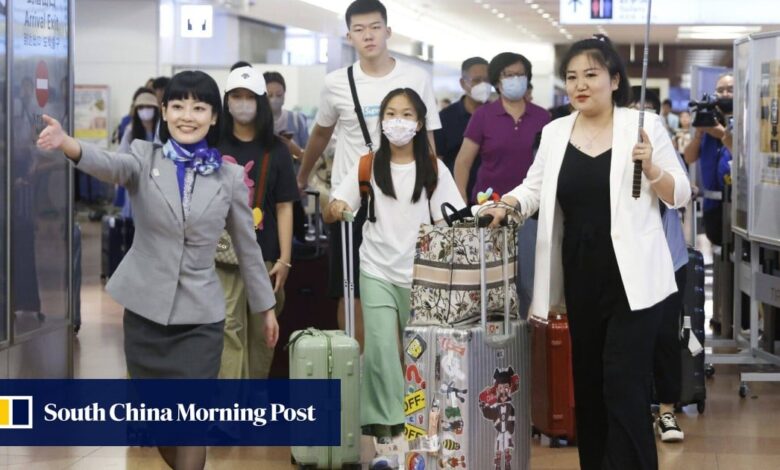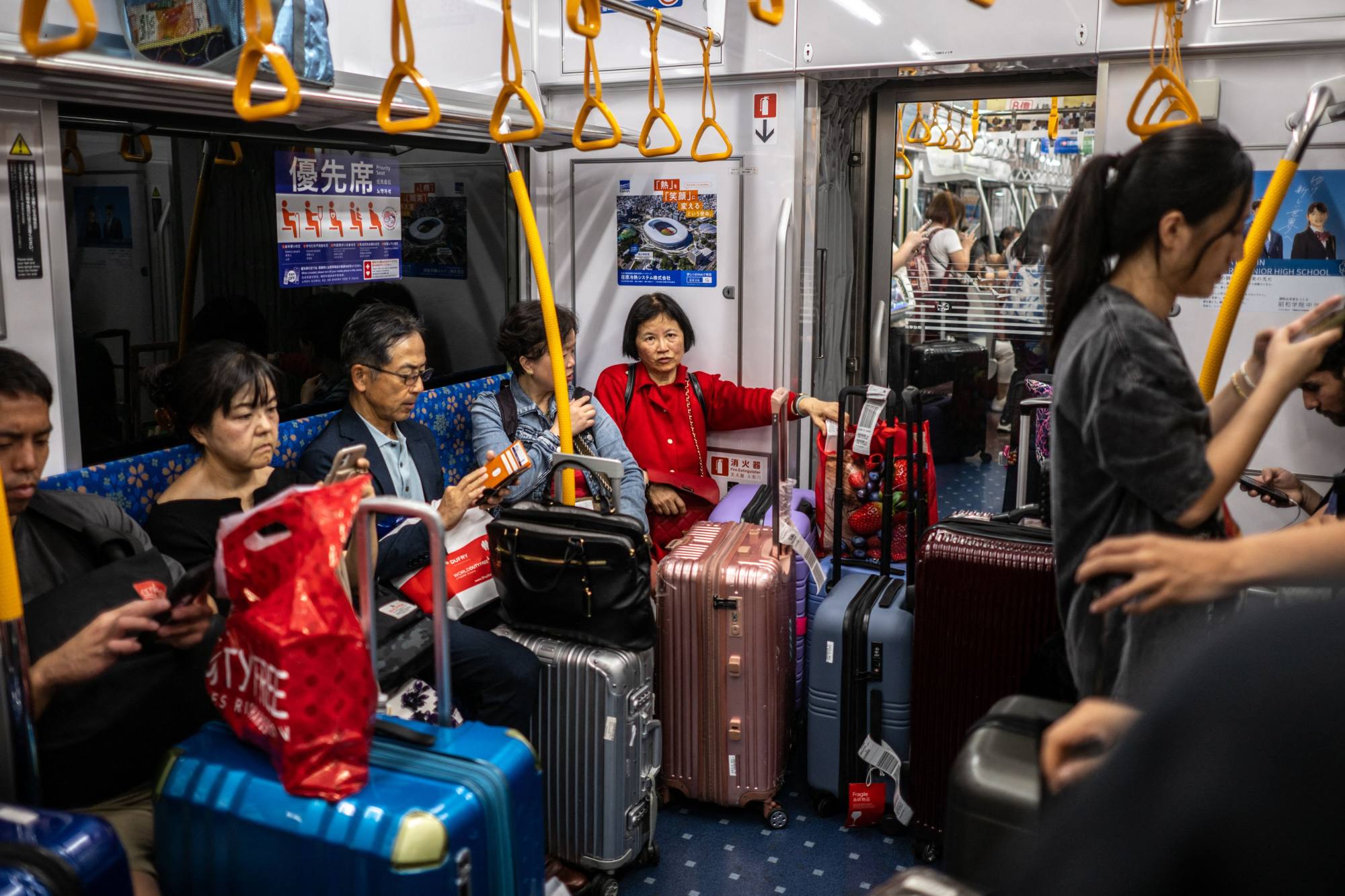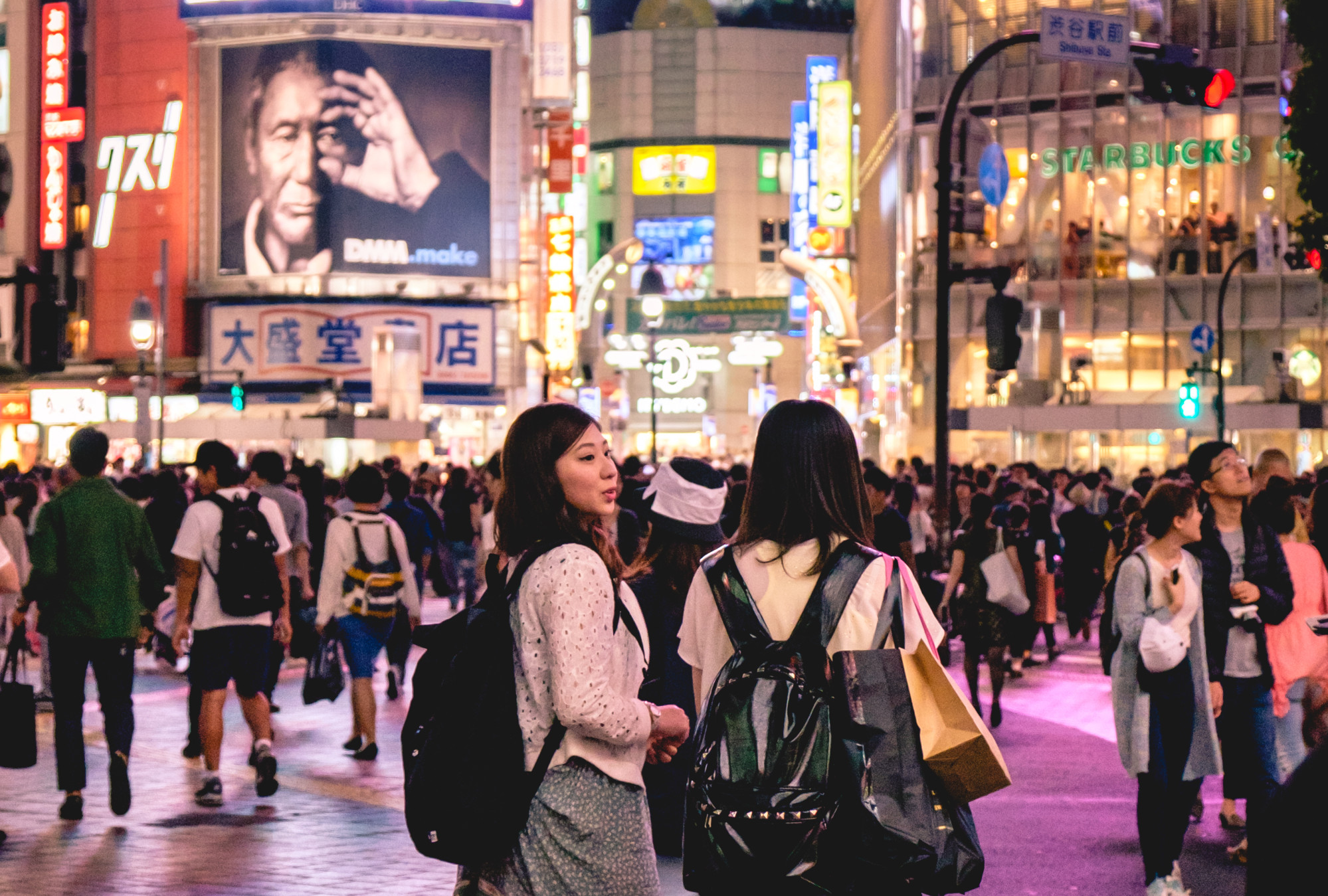Japan banks on ‘golden week’ spending boost as China’s extended national holiday fuels tourism

“This is going to have a massive impact,” said Roy Larke, senior lecturer in marketing at the University of Waikato in New Zealand, and an expert on retailing and consumer behaviour in Japan.
“We expect Chinese tourists to boost the retail sector up to Christmas and the New Year, and then on to the Lunar New Year period next year.”

Department stores are forecast to be the biggest benefactors of the return of large numbers of Chinese tourists, followed by fashion and drug stores.
Sales averaged 101,000 yen (US$683) per person, the association’s figures indicate – up 244 per cent, thanks largely to returning foreign consumers.
Larke said that despite a significant increase in consumer spending from individual Chinese travellers, this was likely to pale in comparison with the outlays of large-scale tour groups returning to Japan.
For department stores, this is huge … we are anticipating the [sales] figures will grow very quickly now
“For department stores, this is huge,” he said. “We are anticipating the [sales] figures will grow very quickly now and, as long as there are no major political crises, then it will continue all the way to next year’s Lunar New Year.”
While Chinese consumers have traditionally headed to Tokyo’s Ginza district for their shopping needs, Larke said the city’s retail scene had changed in the past 18 months or so – with new large-scale outlets in the Shibuya district proving particularly popular among younger overseas visitors.
A number of Japanese retail companies were specifically targeting foreign visitors, he said, such as the Seijo Ishii chain of supermarkets, which has designated tourist-focused outlets in Tokyo’s Ueno district and Kyoto. These stores stock products known to be popular with travellers, such as premium fruit.

Muji reopened its flagship store in Ginza on Friday after a week of renovations, although a company official said it was a coincidence that the reopening coincided with the start of the Chinese holiday season. Muji products, such as its range of functional suitcases, have proved popular with Chinese customers.
A spokesman for Suntory Holdings Ltd said inbound tourism had also helped boost whisky sales. “We believe it will be a good opportunity for overseas guests to see and feel the excellent quality of Suntory whisky,” he said.
Other outlets, including the Takashimaya chain of high-end department stores, have allied with Chinese media platforms to promote products, including food and cosmetics.
Japan’s Nitori joins host of Asian retailers expanding in Hong Kong
Japan’s Nitori joins host of Asian retailers expanding in Hong Kong
The operator of the Don Quijote chain of discount stores has created dedicated areas for bulk purchases of cosmetics, pharmaceuticals and foodstuffs and hired Chinese-speaking sales staff.
Airlines are also making the most of the windfall, with All Nippon Airways officials saying flights from China into Japanese airports are virtually fully booked until next weekend.


 Play with Welcome Bonus Up to 300%
Play with Welcome Bonus Up to 300%